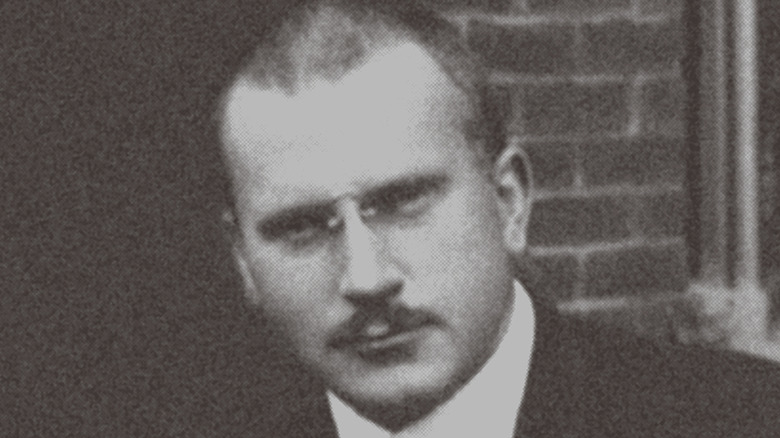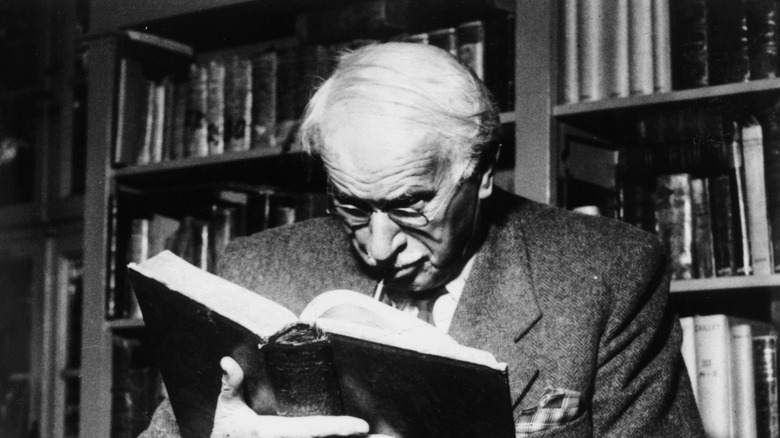How Carl Jung Helped Inspire Alcoholics Anonymous
Swiss psychiatrist Carl Jung was a pioneer in the field of psychology. He founded analytical psychology, a field that emphasizes the individual's need for wholeness. He coined the term "collective unconscious" in reference to individuals being connected to one another through a shared part of the unconscious mind built on humans' past experiences. But lesser known is his significant contribution to the founding of Alcoholics Anonymous, the international fellowship that unites and helps individuals with alcohol misuse disorders.
Alcoholics Anonymous was founded in 1935 by Wall Street stockbroker Bill Wilson and Dr. Bob Smith, as explored by The Atlantic. But the organization can be traced back a decade to the 1921 founding of the Oxford Group, a Christian movement that focused on self-improvement through practices such as "performing self-inventory, admitting wrongs, making amends, using prayer and meditation, and carrying the message to others" (via Alcoholics Anonymous). These practices became the basis of Alcoholics Anonymous, and have guided individuals with alcohol addictions and saved lives for nearly a century and counting. Here's how Carl Jung played a role in the application of these practices to the problem of alcoholism.
Carl Jung believed spirituality was the only real solution to alcoholism
In the early 1930s, a rich man from Rhode Island visited Carl Jung for help with the man's alcoholism. According to Alcoholics Anonymous, Jung concluded that the man's problem was "medically hopeless" and that spirituality was the solution. He directed the man to the religious organization known as the Oxford Group. After experiencing the beginnings of personal transformation, the Rhode Island man then recruited several of his former drinking buddies, including a man named Bill Wilson. Wilson was initially hesitant about the grand claims made by his friend and the Oxford Group, but following a stint in a hospital for alcoholism treatment, he had a spiritual experience that led him to stop drinking for good and inspired him to help others with alcoholism.
Decades later, correspondence between Wilson and Jung that detailed Jung's influence on AA went public. "That conversation between you was to become the first link in the chain of events that led to the founding of Alcoholics Anonymous," Wilson wrote of his friend's visit to the psychiatrist (via Acta Psychopathologica).
"His craving for alcohol was the equivalent of ... the spiritual thirst of our being for wholeness, expressed ... as the union with God," Jung wrote back, concluding his letter with, "Alcohol in Latin is 'spiritus' and you use the same word for the highest religious experience as well as for the most depraving poison. The helpful formula, therefore, is: spiritus contra spiritum."

